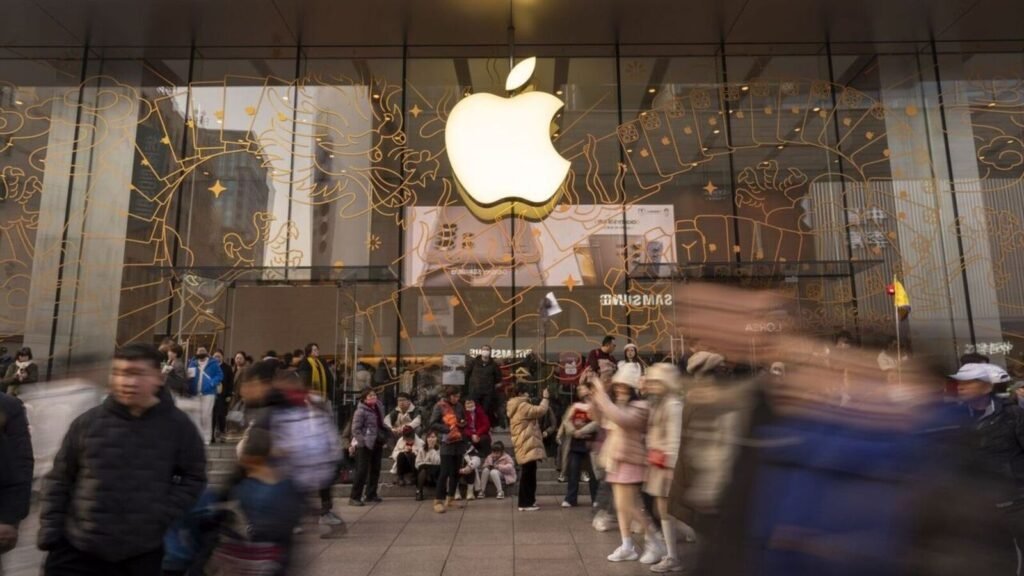Apple allowing third-party app downloads in EU may help India, too

Tuesday’s blog post to developers by Apple said that the move represents “a new way to distribute apps directly from a developer’s website.”
To do this, in the European Union, Apple will allow developers that have been on its app store for at least two years, with apps with at least 1 million downloads, to host an alternative marketplace that can be accessed through web browsers. The move does not represent complete relinquishing of control on Apple’s behalf, which will still continue to charge a service fee from these developers for allowing third-party app downloads and distribution.
Developers, as per Apple’s policy, will only be able to distribute their own apps—and not create a marketplace to allow downloading of any apps. Developers will also be required to “publish transparent data collection policies.” Further, while 1 million downloads from a third-party app store would be free, Apple will collect a ‘core technology fee’ of EUR 0.50 ( ₹45) per installation over and above the first one million every year.
Industry stakeholders and experts said that the move may lend precedent to how Big Tech regulation in India progresses in the near future.
“This can definitely lend precedent to how Big Tech firms are dealt with by startups and regulators in India, in terms of legal precedent for viable alternatives against dominant Big Tech offerings. Even in the latest discussions with senior government officials on acceptable service fees charged by the likes of Google and Apple from any developer on their marketplace, pitches from startups for alternatives always draw questions of what offers existing global precedent. The European Union’s move will definitely lend credibility to India’s demand for creating a third-party app marketplace, and using that to promote a more open and flexible internet economy,” said Rameesh Kailasam, chief executive of startups industry group IndiaTech.org, which counts the likes of Dream11, Zomato, Bharat Matrimony, Ola and others as its members.
Kailasam’s assessment comes after homegrown startups submitted a letter to the ministry of electronics and information technology (Meity) during their presentation challenging Google’s suspension of apps for their parents’ non-compliance with the Big Tech firm’s service fee.
The letter flagged “arbitrary app distribution policies” being practised by Apple and Google.
“App listing, review and guidelines are unilaterally decided by Google and Apple, are unfair and discriminatory, and lead to denial of market access. Hence, Big Tech companies are the judge, jury and executioner ruling on the fate of apps with non-transparent and arbitrary criteria, even so far as deciding which apps are presented to the audience, thereby eliminating consumer choice. Google and Apple (also) set terms of engagement on their app stores in a one-sided manner, and app developers lack the bargaining power to negotiate or seek alternative platforms due to the incumbent pre-eminence and position of dominance enjoyed by the Play Store or the App Store,” the letter said. A copy of it was seen by Mint.
Apple’s Tuesday move marks the iPhone maker’s vehement defence of its mobile ecosystem’s ‘walled garden’ approach. In a landmark antitrust appeal in the US against gaming developer and distributor Epic Games, Craig Federighi, Apple’s senior vice-president of software engineering, notably said during the hearing that Apple’s Mac desktop ecosystem was significantly less secure than its own mobile ecosystem—in part due to the latter not allowing third-party downloads. Federighi had also targeted Google’s Android platform for the same.
“It’s well understood in the security community that Android has a malware problem and that iOS has succeeded so far in staying ahead of the malware problem,” Federighi said at the hearing.
Apple emerged victorious from the hearing, stalling talks of third-party app stores being opened up in iOS. Epic, like India’s startups, was fighting Apple on its levying of up to 30% as service fees for allowing apps to be distributed on its App Store.
Apple did not issue a press statement on its latest move in the European Union.
However, precedent-based arguments may not be very easy. A senior legal consultant at a top law firm, who represents multiple Big Tech firms in India, said that Apple’s move was specific. “This is not Apple responding to arbitrary arguments that demand free features on a platform that makes for the very basis through which many startups have made it big in India. While it is important to support homegrown ventures, Apple and Google clearly reserve their right to establish their own business models and charge their own preferred fees—and even regulators in the European Union have not protested this,” the lawyer said, requesting anonymity since he was not authorized to comment on the matter.
The lawyer added that while Apple’s move to enable limited third-party app distribution in the EU may eventually trickle down to other markets where regulations follow a similar approach, this will “not be a one-size-fits-all solution where Apple is forced into an arbitrary commercial practice.”
“In fact, no Indian courts or regulators have asked either Apple or Google for any such thing,” he added.
Unlock a world of Benefits! From insightful newsletters to real-time stock tracking, breaking news and a personalized newsfeed – it’s all here, just a click away! Login Now!
Download Finplay News App to get Daily Market Updates & Live Business News.
More
Less
Published: 13 Mar 2024, 07:47 PM IST
